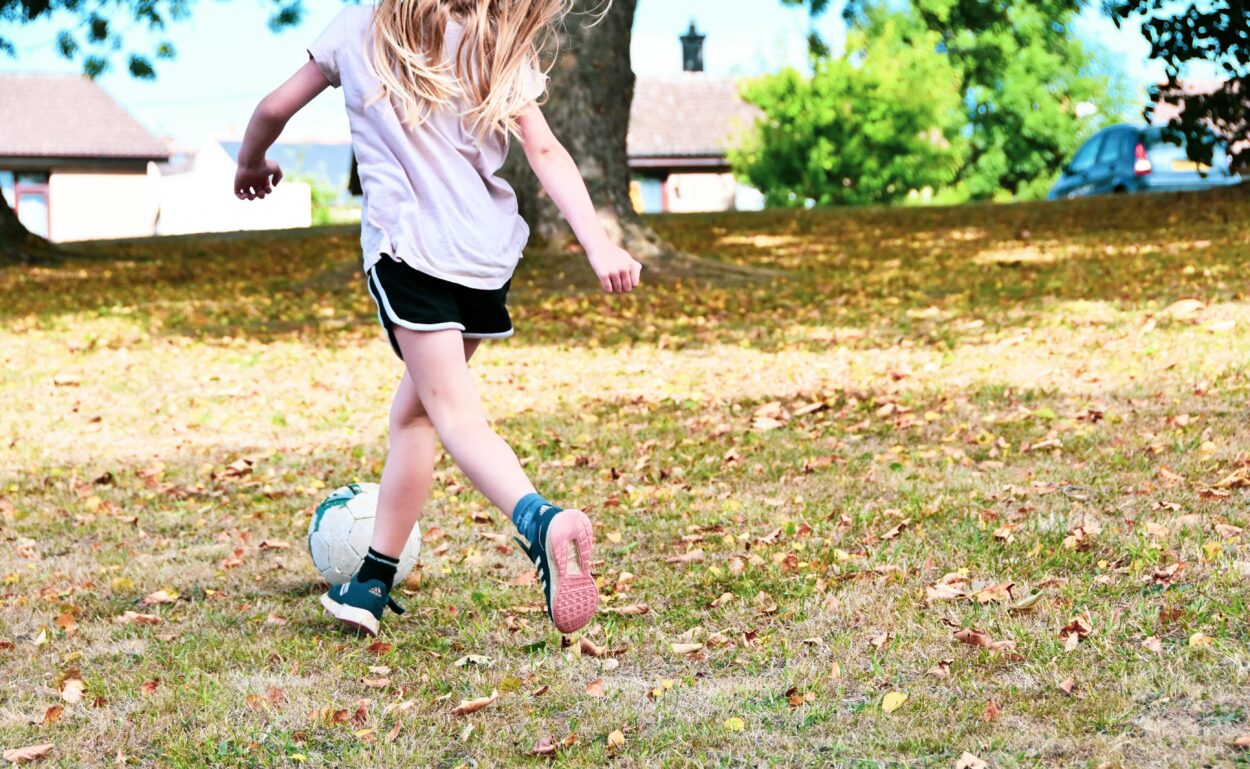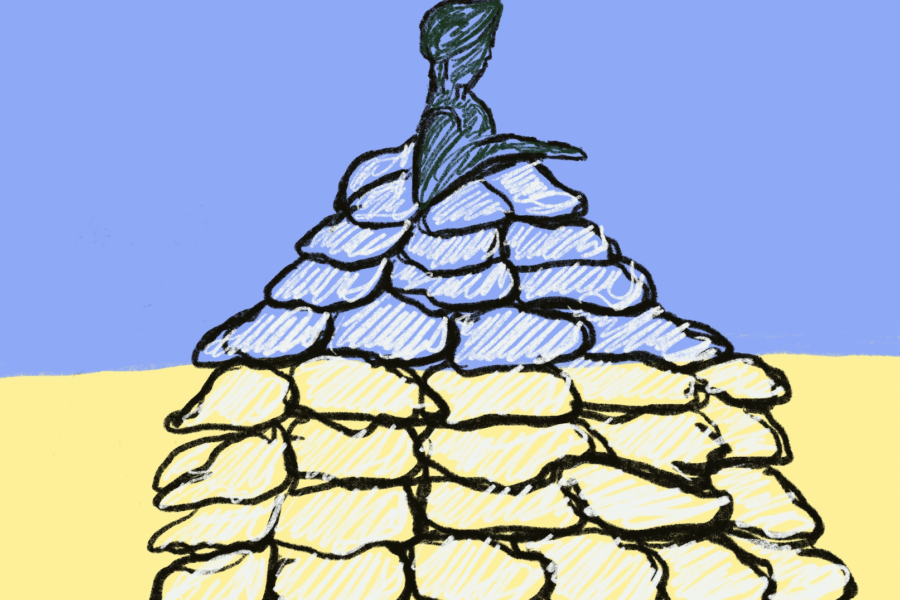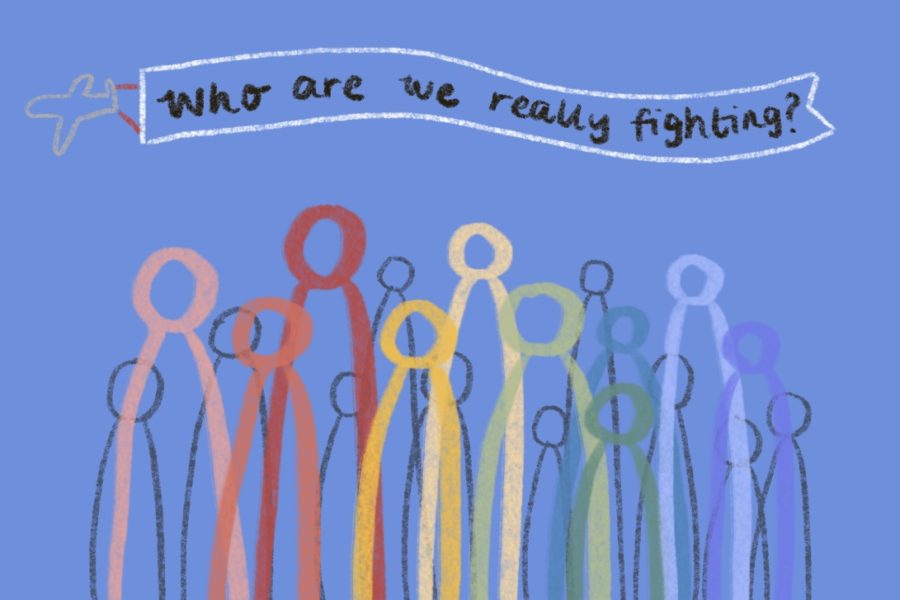Despite the murky comments sections, snide remarks, relentless sexism, and dated denial, the Lionesses have done it. They have brought football home.

COMING HOME
Up in a small corner of the gallery I volunteer at lies a piece titled ‘Limits To Play’, by Celine
Condorelli. It consists of overlapping lines, depicting the years in which women were finally allowed to play sports from which they have previously banned. I have never cared for sports, much less watching them on the telly. This summer changed that. In the corner of a gallery, I began to reckon with the limits to play experienced by the English National Women’s Team who brought football home to their country earlier this month. I don’t partake in football culture, but when Chloe Kelly jubilantly tore her shirt off in celebration of the goal that brought football careening home, I was hooked. I take myself as living proof that you can grow to truly care about something through prolonged immersion. I am not a sportsperson, and up until recently I’ve never quite understood the grip football has on the country I live in. Last year I witnessed the men’s Euros from my Edinburgh central flat window; I could hear the chants of English fans well into the night, permeating my dreams. I’d go for a walk and see crowds of people donning flags as capes, cheeks smeared with St. George’s Cross. “It’s coming home” became my summer soundtrack. Occasionally I would accompany my flatmates to whichever crowded pub we could find seats in to watch the game. Then summer football frenzy ended and I never thought about football again for a whole year. So how did I find myself on the couch with my footie fanatic flatmate, cheering along with the crowds through the telly screen as the Lionesses revel in the delight of having finally ended the thirty years of hurt sung about in “The Three Lions” by the Lightning Seeds?
I think it’s because I’m one of the many people who love a good underdog story with a satisfying ending; and the Lionesses’ win is just that. Having sat precariously in the top 5 best teams according to FIFA, they have persisted as alternates and runner ups. They are no different to their male counterparts in this sense – they carry the same swagger, hunger, and pride. Perhaps the only difference is the ponytails… and the fact women were banned from playing till 1970. Since then, women’s football has faced a long and international road of sexism-induced hardship. It seems the one thing that will upend British nationalism is gender. For all the pub chants, gaudy scarves, and red crosses on white flags we’ve seen slung across picket fences, English enthusiasm for the English bridles at only one thing – the women at the vanguard of the movement.
I’ve witnessed enough slammed pub pints to understand that football runs deep into the heart of patriotism. I’ve seen my Danish flatmate cry real, painful tears over last year’s Euros, and rightfully so. Especially during the Euros, football is inescapable, be it through Instagram ads, facebook memes, or hoards gathered in households feverishly buzzing with anticipation. England has been anxiously awaiting a win since the 1966 world cup; for years they have risen out of their sofas in excitement, only to be met with disappointment and fall and sink back down with misery into the couch cushions. You have to admire them though – even their disappointment is tinged with hope. “Thirty years of hurt never stopped me dreaming” sums it up perfectly, a stirring depiction of English stubbornness interwoven with a love for sport. I grew up hearing the phrase ‘no one watches women’s football’ countless times, so much so I began to believe it. Seeing this year bring the largest crowd ever seen in a European championship brings me satisfaction that must be only a fraction – no, a splinter of what the Lionesses felt when they won. However, when the Lionesses reached the finals of the Women’s Euros, a curious wave of support and wariness spilled across the nation. And when they won, what should have been the collective roar of a nation was undercut by an outpouring of patronising men on the Lioness’s social media.
“Yes they won but the years of hurt aren’t over”, “obviously it’s class they won but football hasn’t come home lol”. It’s a step up from “girl’s don’t play football” and “no one watches women’s football”, because those claims crumble once you witness the skill and ferocity with which the Lionesses play – and it’s vital to remember that a record breaking number of people did. So, these people resort to praise masquerading as disregard. They may as well type ‘good job girls! You tried! But you’re not men, so it doesn’t count’, because that’s how many of these tweets and comments read. It’s a backhanded compliment at best, and plain sexism at worst. ‘It’s class they won, but’… It’s the ‘but’. The ‘but’ solidifies the fact that no matter how hard women work to prove themselves, some people will never be able to tear themselves away from their shrines to masculinity long enough to see what’s in front of them; a team brimming with promise, ready to give England more to celebrate.
When you fight so hard to be recognised, and finally gain that recognition, it comes with a heavy cross to bear – so what happens when you fail? Football fans have earned their reputation because they stick by their teams no matter what. I watched the Denmark vs Spain game with my flatmate, and she hung on till the bitter end; no one encapsulates the ‘if there’s a will there’s a way’ mentality more than my couch-side companion, convinced her team will turn it around in the last ten minutes. But it seems some people are just waiting for the Lionesses to mess up, just so they can resume their decades long tirade on how women can’t play football. But the Lionesses are on top of Europe right now – they acknowledge the victory, but don’t accept it. And that’s too bad for them, because these women and their supporters aren’t going anywhere. This has been a phenomenal year for womens football, and it promises to bring more funding and opportunities to the sport. Women deserve the braggadocio of men’s teams, usually fighting harder for longer through more punishing matches. But we have seen how even the most successful women’s team in history has been forced to pursue legal action to be paid equally to their male counterparts, to earn their fees and their bragging rights. The English Women’s National Team has earned not only a title, but an endless battle to prove their worthiness to the world- a task much more strenuous and taxing than a 90 minute bout. In the blistering heat, I watched as my sister and flatmate kicked a ball back and forth at the Crags Centre here in Edinburgh, a day or two before that historic final. On one side you have a 22 year old Danish native, who’s passion for the sport has slowly but surely made its way past the guards I’ve had up for years. She plays football herself, and I’m sure could tell me stories of how sexism has impacted her as a player. On the other side, you have my sister. Twelve years of age, quiet, with a lot bubbling under the surface, she is a paragon of potential. As she dribbles circles around me but falls prey to a nutmeg from her well-seasoned opponent, she informs me she’s rusty because she hasn’t played in months. As we chatted, I began to wonder if the lack of summer games and practices were as common for the boys team in our small town. Most likely, not. There is so much more to say about lacking opportunities for young girls in football, but that’s deserving of its own conversation. Instead,I’ll return to my starting position.
I am not a football fan, but the Lionesses have certainly made me root for them. And you can claim that football hasn’t come home – in doing so you have denied the right of women to represent the country for which they have worked so hard to play for. But when you see Chloe Kelly, in a hilariously boisterous and thoroughly English move, run off mid heartfelt sentiment to partake in a chorus of English voices chanting ‘Sweet Caroline’, the implications of the win become so clear. Despite the murky comments sections, snide remarks, relentless sexism, and dated denial, the Lionesses have done it. They have brought football home.





Leave a Comment